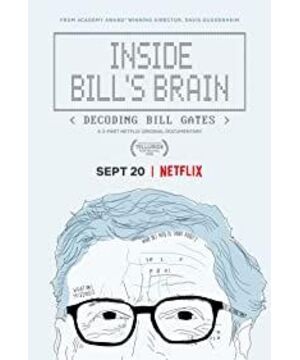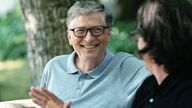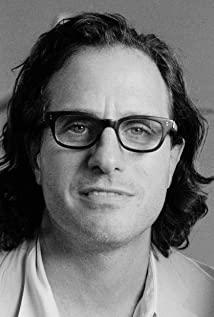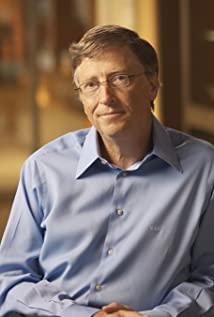After a month and a half of watching, I finally prepared to give birth on the last night of my sick leave. After so long, how much do you still remember the original feeling?
I remember his blue and white canvas bag, so I placed an order and bought 3 of them, but unfortunately, I was a little weak, and the distance to work and the pace of work did not allow me to enjoy it;
I remember him being alone for a week, enjoying coke and sunshine, I almost ordered coconut milk, and the beer on the house reminded me that it was definitely not a good idea;
I remember three of the world's problems that he solved or was still solving. One was toilets; two was vaccines; and three was nuclear energy. What he challenges are all major problems of human development, such as health, disease, energy, and even some are popular, and some are difficult to speak. But he never flinched, just as he was so confident when Microsoft was accused of being a monopoly.
The three-part documentary connects to the present through Bill's youthful experiences, seemingly revealing that the resolution of these world-shattering events is not unrelated to his childhood experiences.
There is no denying that his family background and education and training as a teenager helped shape his way of thinking and behavior. But the genius did not stop there. He chose charity at the peak of Microsoft and personal wealth. There seems to be a pattern from problem selection to solution:
1. From people. The problems that Bill chooses to overcome are usually based on people themselves. Is this compassion? Is this the strength of his persistence?
2. Starting from the problem, to think, and to solve the problem. Once you decide to do something, be very firm. The problems he wants to solve are usually social, need to understand human nature (native), and need to use mechanisms (such as competitions) to connect influential people and the brightest people.
3. Likes to nibble on difficult problems and has a wide range of curiosity, which is evident from his weekly updated book bag. Operating Systems, Spreadsheets, Measure What Matters, Vaccine Race, Haiti Matters, Blockchain Revolution, Power and Stillness, World-Changing Inventions, Deep Learning Fundamentals, Quantum Mechanics and Algorithms, The Book of Questions, Bad Blood, Teachable, The Perfect Weapon, Becoming a Machine, Elasticity…
And what are ordinary people doing?
For example, when nuclear events such as Fukushima and Chernobyl produced news, I actually never paid attention to them, nor did I have any interest in finding out why. So far away from me, it just seems to have just happened. And what about me? If it's not about me, once it's about me, I have a very pronounced emotional response, followed by uncontrolled eating.
I've been complaining every day lately, "It's too hard! Too many things to do! I'm giving up!" Bill couldn't possibly have more time than I did. All are 24H, the gap between time input and consumption, through the operation of a series of machines, allows it to amplify the output more times.
This is the real contrast between how trained and lazy people spend their lives.
This is what his friends say about him:
Time is that he cannot buy more goods.
Most of the books are very esoteric and cannot be read by the average person. The most amazing thing is that no matter what he is talking about, he can always understand more than the other party, which is incredible.
He tells us:
You have to choose a limited number of things, tell your brain, and let your brain do it.
You have to decide what you should care about.
Should I find some related books to read?
Who do I need to talk to about these issues?
Some questions, I just need to think for myself.
Whether it can be solved with technological innovation, I know this, I am good at this, that is how I deal with all problems.
He's interested in a lot of topics, but what he does is he builds a frame in his head and then sorts the information into it.
He likes to touch and understand complex things, and he takes a lot of notes.
On the skill of playing bridge: If you can focus your energy on finding what you need, it will pay off eventually. About partners: We are deep partners, pushing each other, and we think about this company day and night. About Buffett: He asked me a lot of questions, such as, why can't IBM beat Microsoft? What are the economics of Microsoft? How to spot smart people in our industry? How to price our products?
From the decision-making routines, business partners, and close friends' exchanges, we can see how Bill's Brain is trained: curiosity, exploration, asking questions, answering questions, seeking other opinions and different opinions, forming own way.
Q: What are you most afraid of?
A: The last thing I want is for the brain to stop functioning.
Q: What do you do when you encounter a huge setback?
A: I try to take a step back and try to be objective. Before you get somewhere completely, you have to be on the road.
Only then did I know why Bill became the richest man in the world and why Buffett put his money into the Gates Foundation.
View more about Inside Bill's Brain: Decoding Bill Gates reviews









